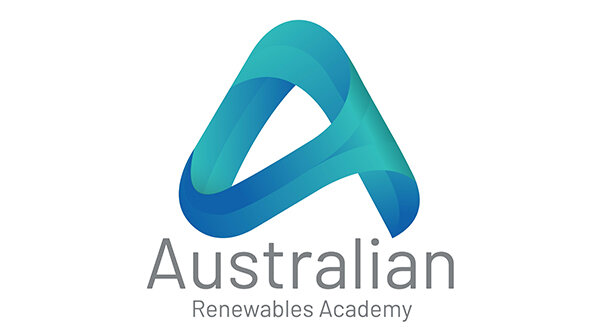Powering People First: Clean Energy Workforce Development in South Australia's Upper Spencer Gulf and Eyre Peninsula
The clean energy transition in Australia isn’t just a question of infrastructure—it’s about people. This was made abundantly clear at last week’s ARA-hosted breakfast workshop in Port Augusta, where leaders from across government, education, industry, and community came together to confront the reality: we can’t reach net zero unless we bring regional communities with us.
In the Upper Spencer Gulf and Eyre Peninsula, we have all the ingredients: sun, wind, land, infrastructure and now, a surge in investment. However, we lack a coordinated, strategic approach to workforce development that ensures these benefits flow to locals.
It’s time to get serious about a clean energy workforce strategy that is regionally led, community-grounded, and backed by government policy that goes beyond headlines.
Local Leadership and Long-Term Benefit
Too often, we see well-meaning community engagement efforts that drop away once construction begins. The consensus at our workshop was clear: community benefits must go beyond the project owner. EPC contractors, subcontractors and delivery partners all need to be held to the same standard.
We must develop and support local leaders—people in the community who know how to negotiate, advocate and hold projects accountable over time. These leaders need the tools, examples and peer support from other regions to build a shared “community of practice.”
And it’s time to shift from industry-led community benefit to community-led models—like those seen in Denmark, Germany and the UK, where developers engage far more meaningfully because communities have a genuine say.
A Regional Workforce, Not a FIFO Model
We cannot allow renewables to replicate the fly-in-fly-out model that has long hollowed out local economic opportunity in regional Australia.
Instead, clean energy projects should be utilised as training grounds—especially during construction—to equip locals with portable skills that benefit not just renewables, but also transport, agriculture, defence and other regional industries. To make this a reality means:
Mapping relevant skills and training pathways for each local project
Rolling out micro-credentials for job seekers, educators and employers
Introducing a renewables-specific induction card, similar to a White Card
Incentivising group training organisations (GTOs) to host trainees and apprentices across multiple employers
We also need to promote the non-financial benefits of regional renewables roles—being close to family, lower cost of living, and contribution to community—as a recruitment and retention tool. This is about more than wages; it’s about lifestyle.
Rebuild the Training System from the Regions Up
There’s positive momentum in places like Port Augusta, with the opening of the new Technical Training College this week offering multiple trades and a dedicated renewables unit, with the capacity for trainees to board at the college as well. But while the College is an example of what’s possible when government, industry and community work together, we need to do more.
We must:
Build regional trainer capacity by engaging experienced industry professionals at the end of their careers
Split training roles to focus on what matters: student learning and trade competency, not red tape
Empower regional campuses to make decisions locally, not from metropolitan head offices
All of this must be co-designed with industry—and with genuine inclusion of women, First Nations people, migrants, and people with disability. These are not tick-box categories. These are the future of the energy workforce.
Policy Must Catch Up to Reality
The policy lag is hurting regional communities. As it stands, many clean energy companies aren’t contributing their fair share to local infrastructure. In South Australia, renewables projects don’t pay council rates—meaning ratepayers subsidise road damage, services and amenity losses. This is not sustainable or desirable.
Governments must:
Mandate local employment targets—not just vague national averages,
Tie renewable energy certificates and planning approvals to genuine, measurable local benefit, and
Push the Commonwealth to honour its election commitments and invest in the clean energy workforce
Let’s also stop measuring success by GDP uplift or project spend alone. Instead, we should be looking at ABS data on local employment, education outcomes, cost-of-living improvements and even social metrics like community wellbeing. If a project delivers power but not prosperity, it has failed.
Where to Next?
The next 6–12 months are pivotal. The Upper Spencer Gulf and Eyre Peninsula can become national models for what inclusive, community-driven workforce development in clean energy can look like.
The collaborative spirit was evident not just in the formal sessions but in the energy and openness of the conversations throughout the morning. It was clear that everyone in the room was committed to listening, learning, and working together to drive real change.
Particularly impressive was the willingness of participants to think beyond their immediate interests and silos, and to focus on long-term regional outcomes—whether that meant co-designing new training models, supporting inclusive pathways into trades, or holding industry to account on local employment and community benefit.
This kind of cross-sector engagement is essential if we’re to successfully navigate the transition to an inclusive clean energy workforce for regional South Australia.
It was evident throughout the breakfast how much potential exists when regions have the opportunity—and support—to lead.
As one participant rightly said, “We can’t get to net zero without regional Australia. So, let’s start treating regional Australia like the centre of the solution, not the edge of the map.”
MGA Group, through the Australian Renewables Academy, is committed to partnering with regional communities, employers, government, RTOs and local leaders to make this happen. Whether it’s co-designed pre-employment programs, piloting micro-credentials, or coordinating site visits for schools and job seekers, we are ready to help turn talk into tangible outcomes.
If you’re a project developer, policymaker, employer or training provider wanting to be part of the solution in South Australia, let’s talk. Because the transition isn’t just about clean energy—it’s about clean opportunity, and clean accountability, too.
#CleanEnergy #RegionalJobs #UpperSpencerGulf #EyrePeninsula #WorkforceDevelopment #Renewables #SocialLicence #CommunityBenefit #MGAGroup #ARA #Training #NetZero
David Moody, Head of Strategic Relationships, Management Governance Australia Group
Mandy Masters, Coordinator – Renewable Energy South Australia, Australian Renewables Academy

